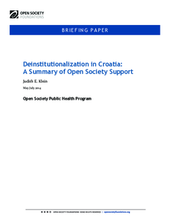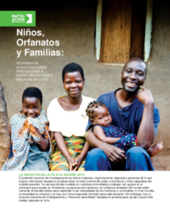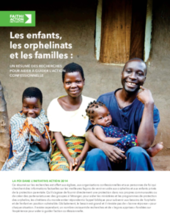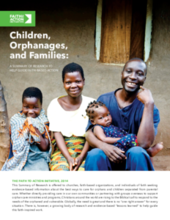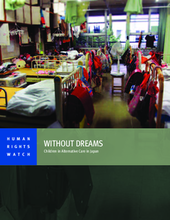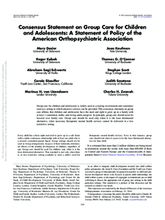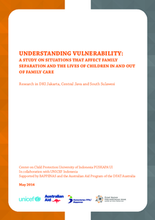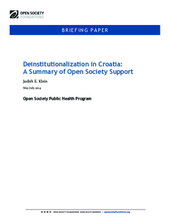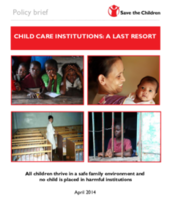Displaying 501 - 510 of 744
In this chapter of the Handbook of Child Well-Being, the authors review the findings from research on the cognitive and social-emotional development of children growing up in institutions, foster care and adoption.
This paper examines the benefits and challenges of de-institutionalizing disability residential services in Croatia through Open Society Foundation’s Mental Health Initiative (MHI).
El presente resumen de investigaciones se ofrece a iglesias, organizaciones religiosas y personas de fe que buscan información basada en pruebas sobre la mejor manera de cuidar a huérfanos y niños separados del cuidado parental.
Ce résumé sur les recherches est offert aux églises, aux organisations confessionnelles et aux personnes de foi qui cherchent des informations factuelles sur les meilleures façons de venir en aide aux orphelins et aux enfants privés de la protecti
This Summary of Research provides a concise overview of a range of studies and findings that can inform approaches to caring for children who, through orphanhood, abandonment, or other causes, have been separated from parental care.
This report by Human Rights Watch examines Japan’s alternative care system for children. It describes its organization and processes, presents current data on the use of different forms of alternative care and highlights the problems found in the institutionalization of most children (including infants), as well as abuses that take place in the system.
This statement of policy of by American Orthopsychiatric Association reviews the evidence on the use of congregate or group care for children and adolescents and concludes that institutional care is nonoptimal for children of all ages, including teenagers, and that even smaller group care settings can be detrimental to the growth and well-being of youth.
This report presents analysis and key findings from a study aimed at fully understanding the situations of children in Indonesia that may lead to family separation.
This paper examines the work Open Society Foundations have done in Croatia as part of its Mental Health Initiative (MHI), with the goal of helping people with disabilities return to their communities where they are support
Save the Children has released a policy brief outlining its position on the institutional care of children.

